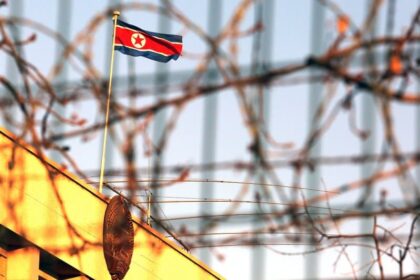The Rise of Scamming Compounds in Cambodia
In recent years, Cambodia has become a focal point for large-scale fraud operations orchestrated by transnational crime syndicates, particularly those with Chinese origins. These operations have drawn in thousands of foreign nationals, including Japanese, South Koreans, Australians, and citizens from across Southeast Asia, who are often lured or coerced into working in sprawling compounds that function as both workplaces and prisons. The story of these compounds is one of rapid development, international intrigue, and a growing humanitarian crisis.
What Are Scamming Compounds and How Do They Operate?
Scamming compounds are large, often fortified complexes that house hundreds or even thousands of workers engaged in online fraud, telephone scams, and other illicit activities. These compounds are typically located in border regions or special economic zones, where oversight is lax and law enforcement is often complicit or overwhelmed. The compounds are run by organized crime groups, many of which have roots in China, and are designed to be self-sufficient, with amenities such as supermarkets, nightclubs, karaoke rooms, and even casinos under construction.
According to eyewitness accounts and investigative reports, residents of these compounds are rarely allowed to leave. Many are recruited under false pretenses—promised legitimate jobs in IT, customer service, or casino work—only to find themselves trapped and forced to participate in scams targeting victims around the world. A driver who regularly ferried Chinese investors to one such compound in Prey Veng province described the area as resembling a Chinese town, complete with Chinese restaurants, a hospital, and businesses that accept Chinese yuan.
One self-employed man who delivers construction materials to the site noted, “This area used to be covered in rubber plantations. It’s developed rapidly over the past year.” He added that the influx of Chinese investment has transformed the region, but also brought unease among locals who suspect the true nature of the businesses being established.
Inside the Compounds: Life and Work
Within the compounds, workers are organized into call centers where they are instructed to carry out various types of fraud. In one case uncovered by Japanese police, a suspect impersonated police officers or prosecutors to trick Japanese victims into transferring money. The compounds are equipped with everything residents might need, but this is less a sign of luxury and more a method of control—residents are kept confined, with only business partners and select outsiders allowed to enter or leave.
The nationalities of those inside are diverse, reflecting the global reach of the recruitment networks. Reports indicate that, in addition to Southeast Asians, there are South Koreans, Australians, and Japanese nationals working in these centers. Many are victims of human trafficking, their passports confiscated and their movements tightly controlled.
Japanese Nationals and the International Dimension
The involvement of Japanese nationals in these operations has drawn significant attention in Japan and internationally. In April and May, police in Fukuoka Prefecture uncovered several recruiters for special fraud operations linked to Cambodia. A number of Japanese suspects were found to be working in these compounds, some of whom had been lured by promises of high-paying jobs abroad.
In May, 29 Japanese nationals were detained in Poipet, a Cambodian city on the border with Thailand known for its casinos and rapid development. These individuals were later transferred to Phnom Penh, where Japanese law enforcement officials traveled to investigate their links to fraud cases back home. Similar arrests have been made in connection with compounds in other parts of Cambodia, as well as in neighboring countries like Myanmar and Laos.
How the Scams Work
The scams perpetrated from these compounds are varied but often involve impersonation and social engineering. Workers are given scripts and target lists, and are trained to pose as officials, bank employees, or romantic interests to extract money from victims. The operations are highly organized, with different teams responsible for different aspects of the fraud, from initial contact to money laundering.
According to a driver familiar with the Prey Veng compound, “Everyone knows that this is a fraud base.” The scale of the operations is staggering, with some compounds employing thousands of people and generating millions of dollars in illicit profits each month.
The Role of Chinese Crime Syndicates
Chinese organized crime groups are widely believed to be the masterminds behind many of these compounds. These syndicates have leveraged Cambodia’s lax regulatory environment, weak law enforcement, and strategic location to establish a network of scam bases across the country. The development of these compounds is often disguised as legitimate business investment, with casinos, hotels, and other enterprises serving as fronts for criminal activity.
Chinese investment in Cambodia has surged in recent years, particularly in areas near the borders with Vietnam and Thailand. This has brought economic benefits, including the creation of tens of thousands of jobs, but has also fueled concerns about corruption, money laundering, and the erosion of local control. A senior local government official in Prey Veng province admitted that all the major development projects in the area are suspected of being used as scam bases, but efforts to investigate have been stymied by higher authorities.
Why Cambodia?
Cambodia’s appeal to transnational crime syndicates lies in its combination of strategic location, permissive business environment, and limited law enforcement capacity. The country’s borders with Vietnam, Thailand, and Laos make it an ideal hub for cross-border operations, while its special economic zones offer tax breaks and minimal oversight. Corruption is a persistent problem, with officials at various levels accused of turning a blind eye to criminal activity in exchange for bribes or other benefits.
In addition, the rapid development of infrastructure—often funded by Chinese investment—has created opportunities for criminal groups to establish large, fortified compounds with little interference from authorities. The presence of casinos, which are legal in Cambodia but banned in neighboring countries, provides a convenient cover for money laundering and other illicit activities.
Human Trafficking and Forced Labor
One of the most disturbing aspects of the scamming compounds is the widespread use of human trafficking and forced labor. Many of those working in the compounds are victims who were deceived by false job offers or sold by traffickers. Once inside, they are subjected to harsh working conditions, physical abuse, and threats of violence. Passports are confiscated, and escape is often impossible without outside intervention.
According to the Cambodian government, around 24,000 individuals involved in online fraud and human trafficking have been uncovered over the past three years, and nearly 5,000 people from more than 20 countries have been rescued from these operations. However, human rights organizations argue that these figures only scratch the surface of a much larger problem.
Amnesty International’s Critique
In a report released on June 26, Amnesty International criticized the Cambodian authorities for what it described as “collaboration or coordination” with Chinese organizations operating the scam bases. The report alleged that many compounds continue to operate even after being exposed, and that official interventions are often “for show” rather than genuine efforts to dismantle the criminal networks.
Amnesty International stated, “Despite publicized raids and rescues, the underlying structures of exploitation and impunity remain largely intact, with many victims left without adequate support or justice.”
The report called for greater international cooperation and accountability, as well as stronger protections for victims of trafficking and forced labor.
Government Response and Ongoing Challenges
The Cambodian government has publicly pledged to crack down on scam compounds and human trafficking, citing recent raids and rescues as evidence of progress. However, critics argue that these efforts are insufficient and often undermined by corruption and lack of political will. Local officials who attempt to investigate or intervene are sometimes ignored or overruled by higher authorities, and the economic benefits of foreign investment create powerful incentives to look the other way.
International pressure is mounting, with law enforcement agencies from Japan, South Korea, Australia, and other countries working with Cambodian authorities to investigate and prosecute those responsible for recruiting and exploiting their citizens. However, the transnational nature of the crime syndicates, combined with weak legal frameworks and limited resources, makes effective enforcement a daunting challenge.
The Broader Implications
The proliferation of scamming compounds in Cambodia is not just a local or regional issue—it is a global problem with far-reaching consequences. Victims of the scams are located around the world, and the profits generated by these operations fuel further criminal activity, including money laundering, drug trafficking, and corruption. The exploitation of vulnerable individuals, many of whom are trafficked across borders, highlights the urgent need for stronger international cooperation and more effective protections for victims.
As the world becomes increasingly interconnected, the ability of transnational crime syndicates to operate across borders and exploit legal loopholes poses a growing threat to global security and human rights. Addressing this challenge will require sustained effort from governments, law enforcement agencies, civil society organizations, and the private sector.
In Summary
- Cambodia has become a hub for large-scale fraud operations run by Chinese crime syndicates, with scamming compounds housing thousands of foreign workers.
- These compounds are often disguised as legitimate businesses and are heavily fortified, with residents kept confined and forced to participate in online and telephone scams.
- Japanese nationals and other foreigners have been recruited or trafficked into these operations, leading to international investigations and arrests.
- Human trafficking and forced labor are widespread, with many victims subjected to harsh conditions and abuse.
- Amnesty International and other organizations have criticized Cambodian authorities for inadequate enforcement and alleged complicity with criminal groups.
- International cooperation and stronger protections for victims are urgently needed to address the growing threat posed by transnational scam syndicates.












